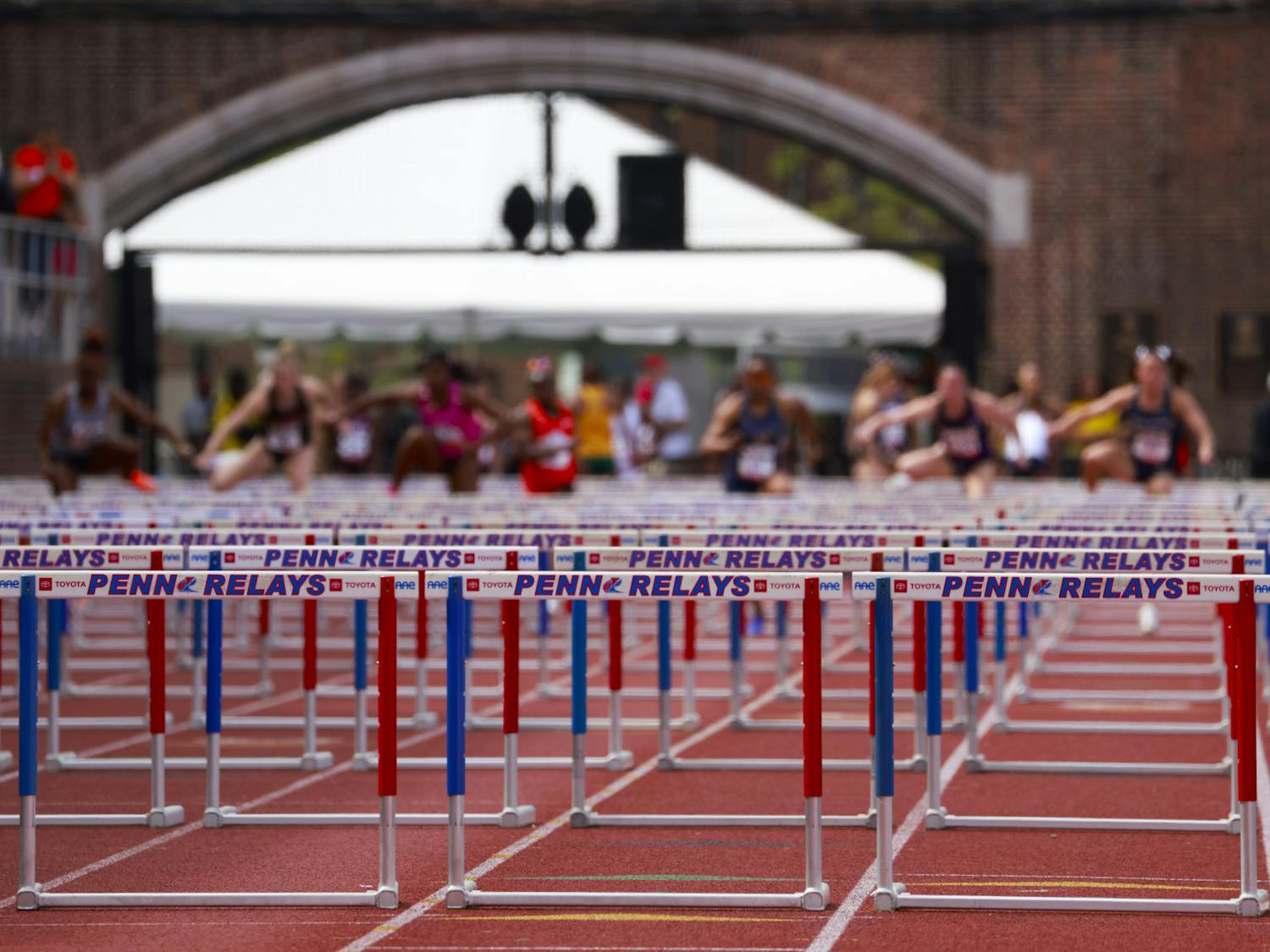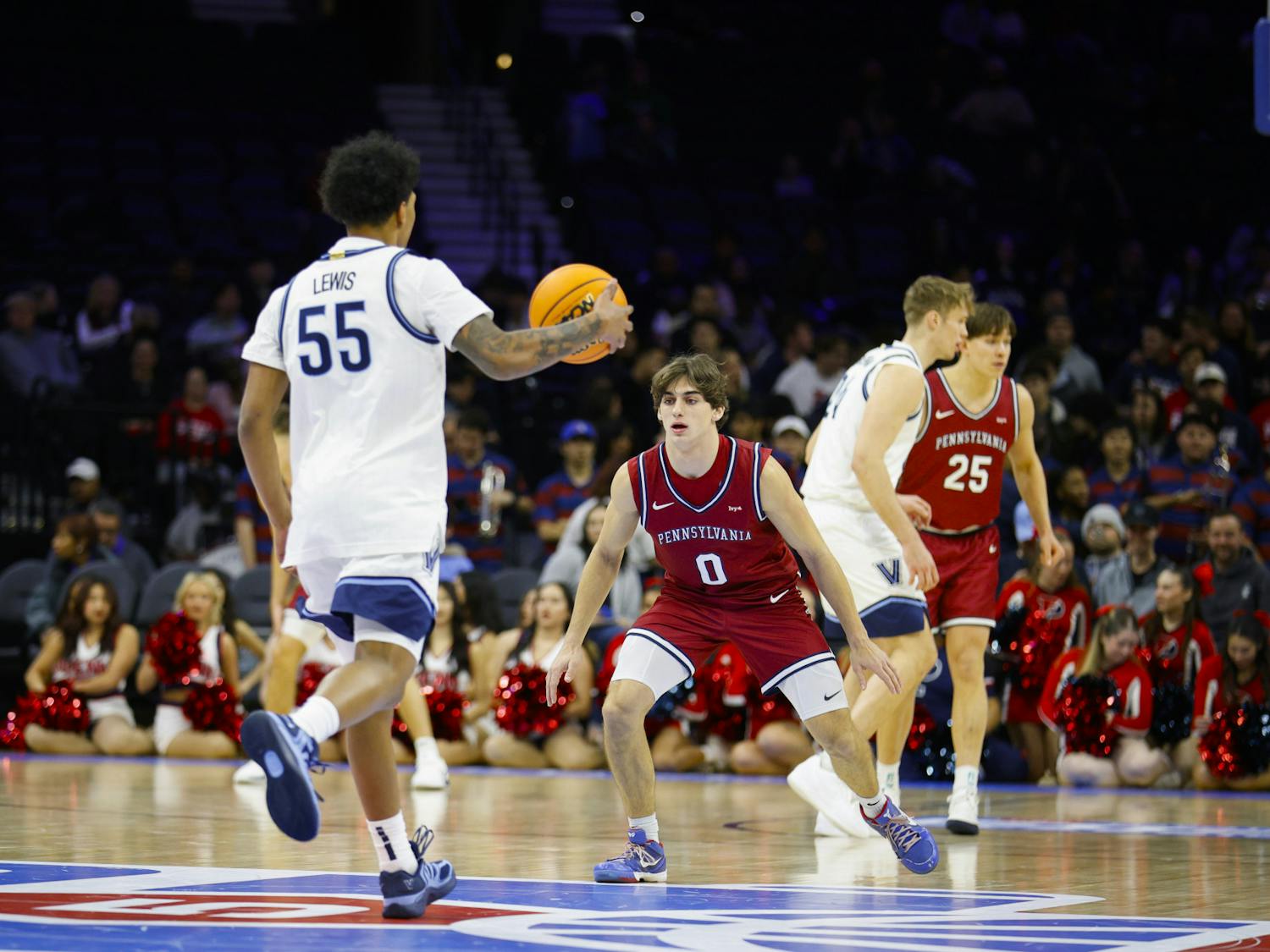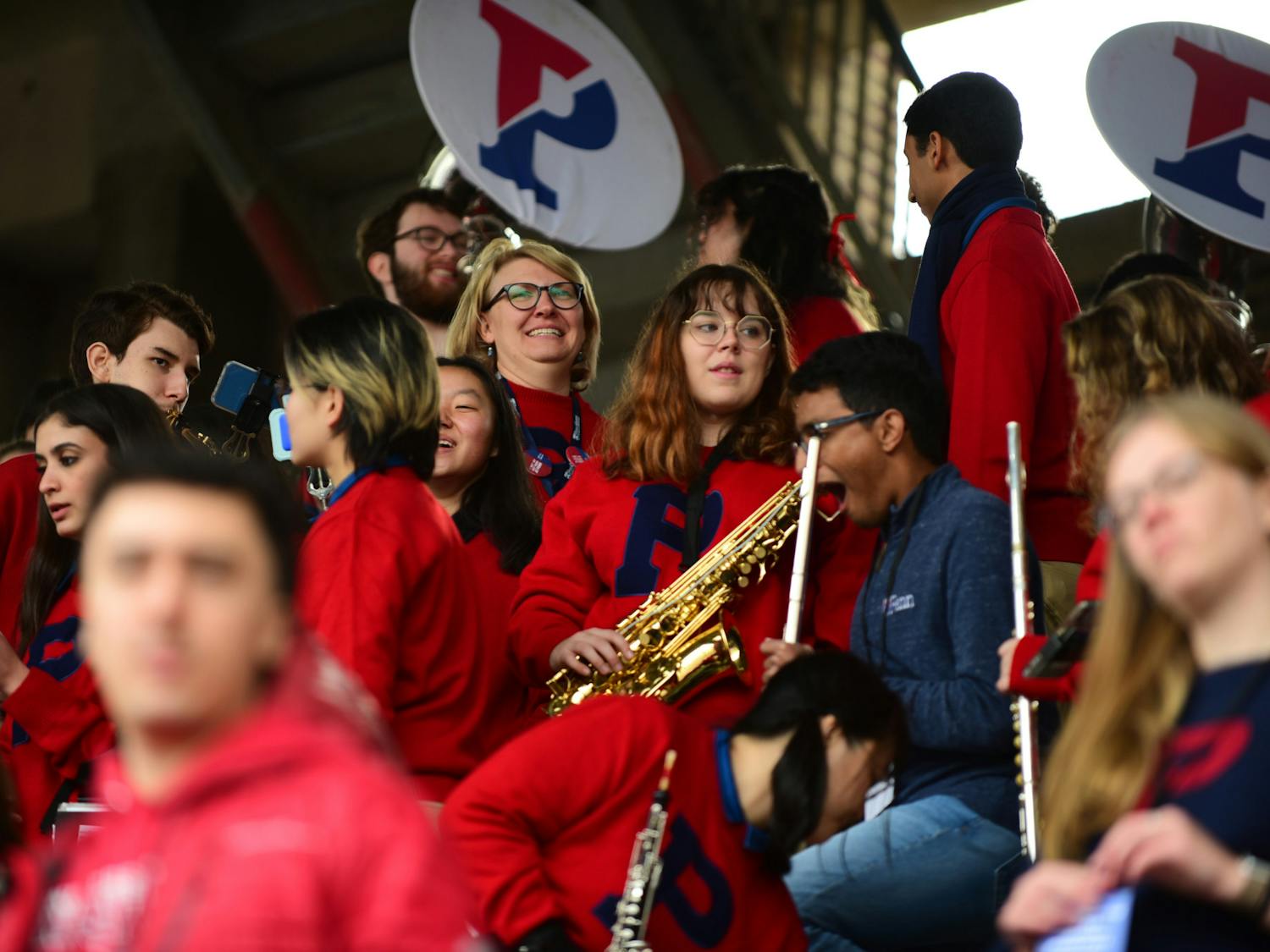Sophomore Jacob O'Donnell is president of the Bucknell wrestling club.
For now, that title's fine, but that's really not the status he'd like -- he wants to be a varsity wrestler, just like he was last year.
O'Donnell is plenty talented to compete for the Bison, but the athletic department cut the program in May.
The Bucknell wrestling alumni proposed giving $500,000 to the athletic department to fund the program, but the athletic department refused. It was not an issue of funding -- the athletic department cut both wrestling and men's crew in order to assure that the program's male athletes remain within five percent of its male enrollment of the enrollment at large.
O'Donnell's story is not an isolated case.
Since Title IX of the 1972 Educational Amendments mandated gender equity, 435 athletic departments have cut wrestling programs.
From the 138 men's gymnastics programs in 1972, only 20 remain.
And now several coaches associations are looking to change this current trend through a lawsuit against the United States Department of Education. Such a possibility was first considered in 1996 by the National Wrestling Coaches Association.
Everyone feels that Title IX has good intentions -- that women should have equal rights and opportunities as men in educational opportunities.
But the NWCA, Committee to Save Bucknell Wrestling, Marquette Wrestling Club, Yale Wrestling Association, College Sports Council, United States Track and Field Coaches Association, College Gymnastics Association and Collegiate Swimming Coaches Association of America each feel that Title IX's current form will cause for the further deterioration of "non-revenue" men's sports.
"You can be certain that this will adversely affect USA performance in many Olympic sports in years to come," Penn wrestling coach and former president of the NWCA, Roger Reina, said.
"And you will also see a significant drop in qualified coaches and mentors from eliminated programs who previously had returned to serve their community."
But women's interest groups quickly counter, saying that gender equity has not yet been achieved in athletics, so talk of changing Title IX is preposterous.
"This was the same argument that was made about women not being interested in being doctors or lawyers, and these arguments have been named illegal," senior council at the National Women's Law Center, Leslie Annexstein said.
"To talk about changing Title IX when we haven't received equality is ridiculous."
In 1979, the Office of Civil Rights asserted a statute of the Title IX amendment that established the three-prong test to practically evaluate how universities are implementing gender equity. The OCR clarified the specifics of the three-prong test in 1996.
With this legislation, universities were forced to fulfill two of the following three requirements -- that the percentage of women in athletics be proportionate to that in the student body, that a school must show a history of expanding its women's athletic programs and that a school must "fully and effectively accommodate the interests and abilities of intercollegiate program expansion for the underrepresented sex."
But while universities have the opportunity to fulfill the second two prongs, many have chosen to cut programs to adhere to the proportionality clause because it is convenient.
The clause gives universities a loophole that allows them to appear that they are interested in gender equity, while cutting a substantial portion of the budget.
Jim Schmitz, the president of the Marquette wrestling club, claims that his program was cut out of convenience -- that it would have cost $10,000 to add a women's team in another sport and that may not have been "enough to make a competitive team."
Cutting wrestling is particularly convenient for athletic departments because there is no female counterpart available.
By their nature, these coaching associations feel that proportionality and quotas are illegal.
"We don't dispute for one minute that women were seriously discriminated against thirty years ago," NWCA President Michael Moyer said. "One of the biggest problems with proportionality is that you can't have a one-size fits all policy."
The coaches associations' lawsuit raises three issues -- that proportionality is illegal and therefore must be changed, that the implementation of proportionality was not done correctly, and is therefore void, and that even if Title IX were implemented correctly, it was written 30 years ago and therefore needs to be reevaluated.
Larry Joseph, the lead attorney for the case, acknowledges that the defense will probably attack the third argument the most of the three.
Women's rights groups such as the Women's Sports Foundation, the National Women's Law Center and the National Coalition for Women and Girls in Education also protect Title IX on the basis that it is impossible to measure the interest of a gender about anything, let alone sports.
"It's our belief that it's preposterous and dangerous to base an opportunity on whether some people think another group is interested or not," chair of the chair of the National Coalition for Women and Girls in Education, Jamie Fasteau said.
The Department of Education motioned to dismiss the case on the basis that the lawsuit is unfounded and also that even if the prosecution wins, that schools may not change their ways.
The federal court first heard testimony on whether to move the case forward on Oct. 15th. The case is still pending. Should the case progress, the next step for the prosecution would be to pass summary judgement based on the brief it filed.
Should the brief reach trial, Title IX in its current form could drastically change. The current format of Title IX has given unprecedented rights to women in athletics.
The two ideas are not mutually exclusive. But whether a change in Title IX's proportionality clause can continue to equal the playing field for women, while at the same time saving low-profile male sports, remains to be seen.
For the next three days, The Daily Pennsylvanian will evaluate the effects of Title IX on intercollegiate athletics after 30 years. The DP will focus on whether or not Title IX has accomplished its stated goals. It will also examine the reverse effects of Title IX on smaller, non-profiting men's sports. The DP also look at current attitudes in government and pending legislation regarding the legality and fairness of Title IX.








